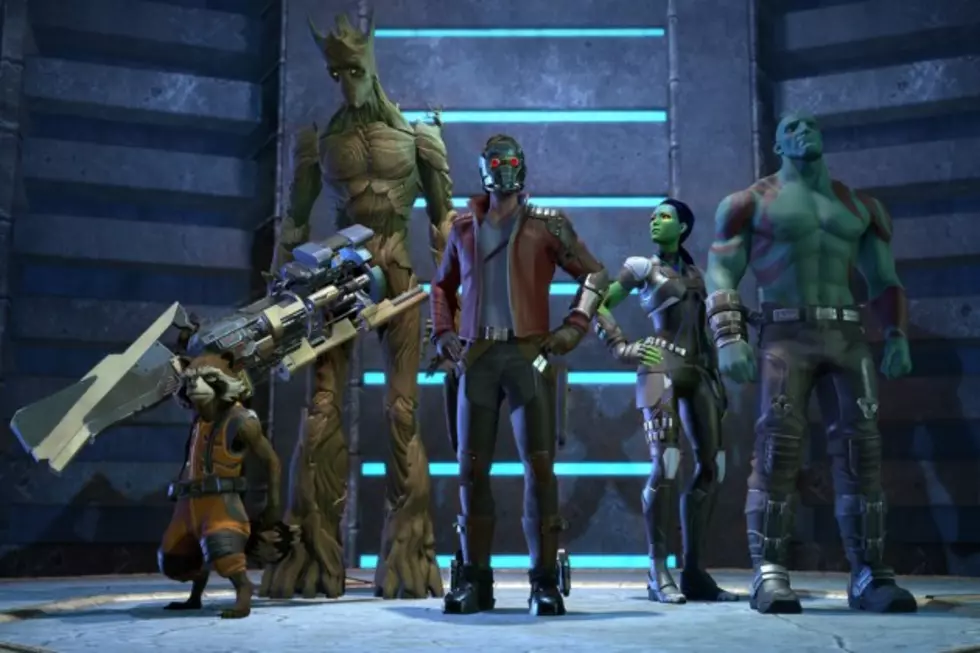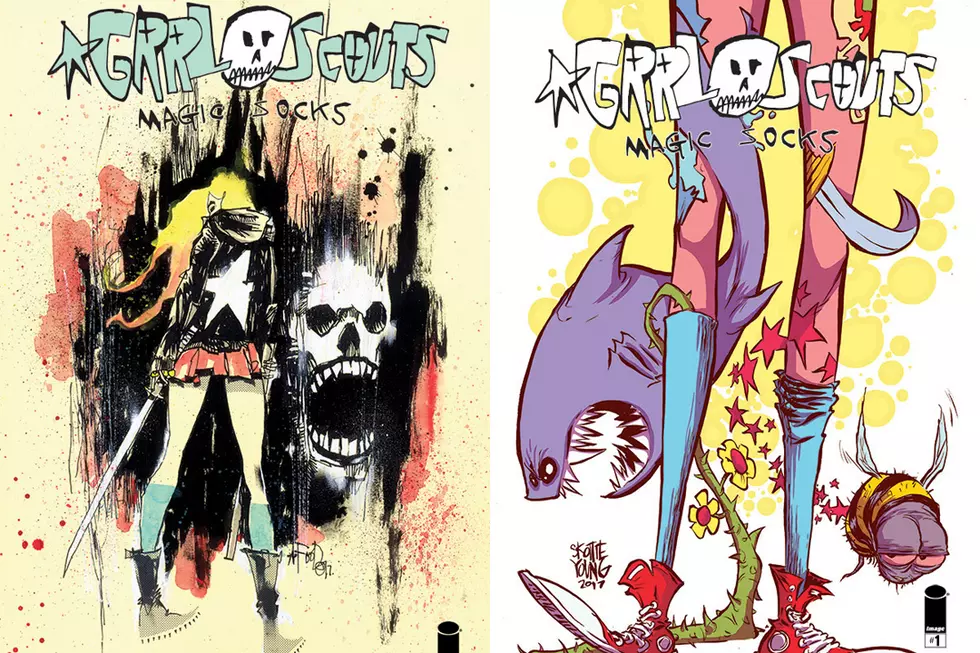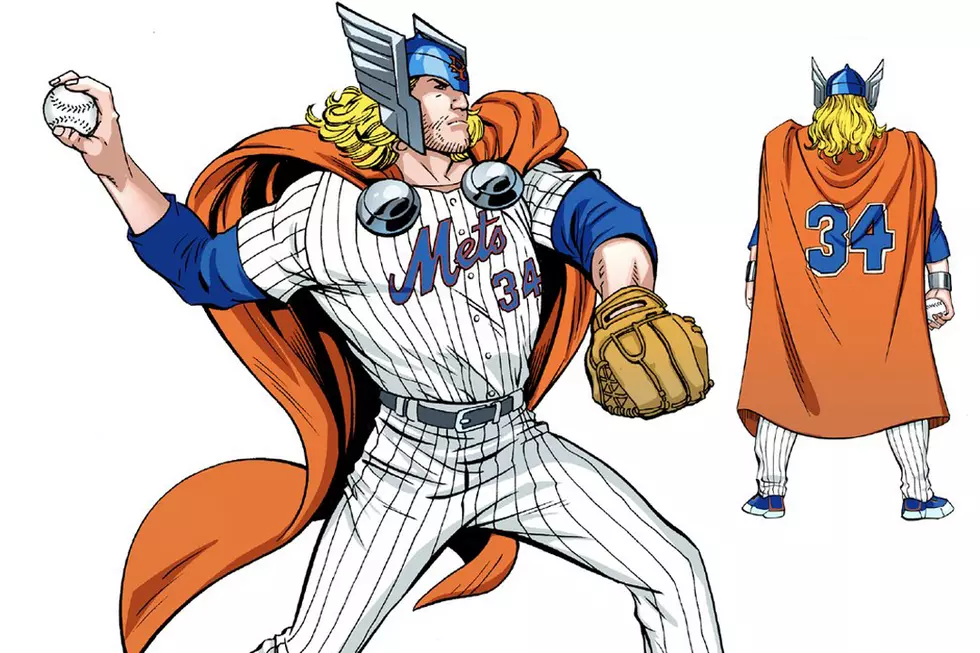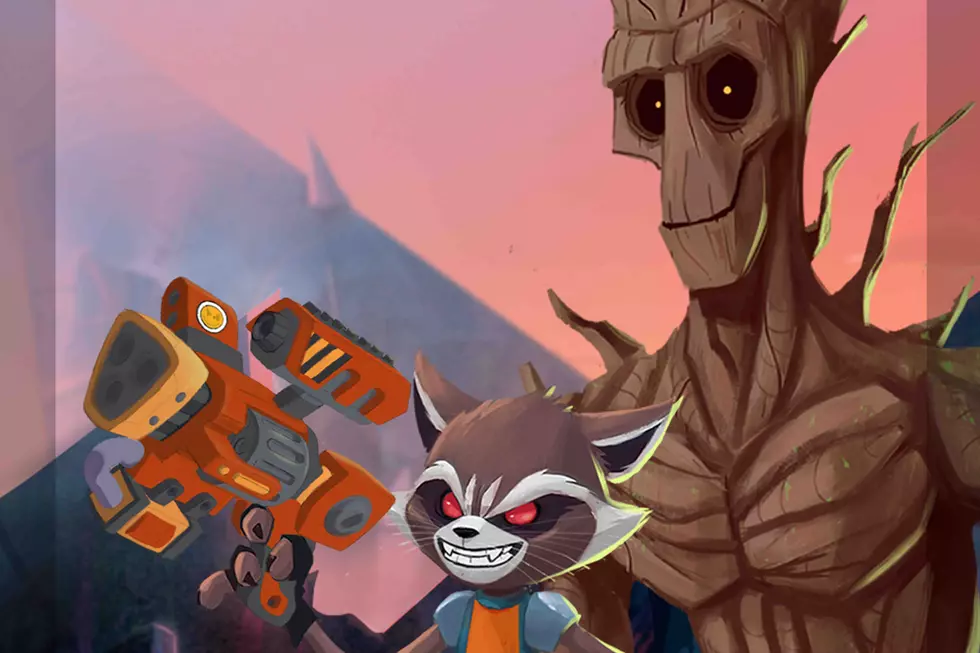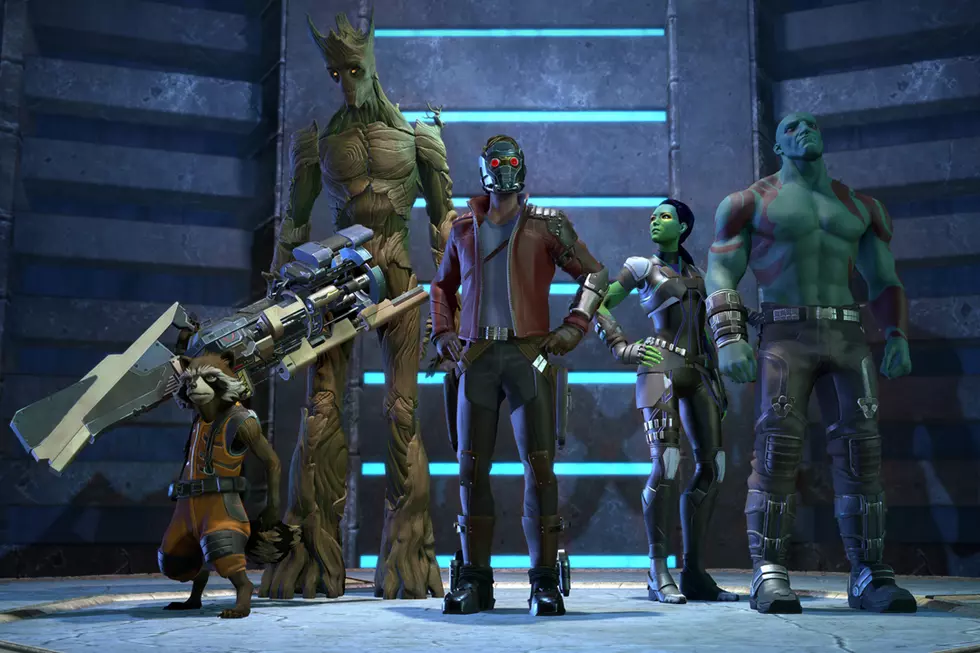![Skottie Young’s ‘Rocket Raccoon’ #1 Makes A Joyous Noise (That You Can’t Hear In Space, But Whatev) [Review]](http://townsquare.media/site/622/files/2014/06/RR1Cover.jpg?w=980&q=75)
Skottie Young’s ‘Rocket Raccoon’ #1 Makes A Joyous Noise (That You Can’t Hear In Space, But Whatev) [Review]
I promise I mean this in the best possible way: Writer/artist Skottie Young and colorist Jean-Francois Beaulieu's Rocket Raccoon #1 reads like a comics version of a LucasArts computer adventure game.
I realize that comparisons like that can be a backhanded insult. Saying that one piece of media is like another is an indirect way of saying it's derivative or wears its influences too clearly on its sleeve. That isn't what I'm trying to say here. What I mean is that Rocket Raccoon has a particularly appealing sense of humor to it, a specific style to its art, and its characters -- even those that appear in the margins -- feel alive.
As Chris Sims pointed out in his preview post a few weeks ago, a meaty scene in the middle of this issue takes place at a professional wrestling match. Rocket is pulling double duty, going to support his buddy Groot as he faces a tentacle monster, and making the match the spot-of-choice for a big date.
What's happening in the foreground is funny enough, but Young has clearly spent a lot of time adding details to the background, too. The crowd is made up of a bunch of circles and curves made to look like people and/or aliens. Dozens of characters that appear in a tiny little portion of a single panel have instantly recognizable personality and energy to them. They hold up signs that one imagines would absolutely be the kinds of signs fans take to a space wrestling event. Lit-up messages in the arena warn attendees not to murder each other.
Those all sound like inconsequential background details. Certainly, Young could have told an entertaining story about Rocket going on a date and running into some trouble without putting them in. But they're extremely valuable to the feel of the book. This wouldn't be the same comic without all that stuff going on in the background, and it's infinitely more entertaining because of it.
Same goes for the dialogue. At the very beginning of the book, readers see a mysterious character engaged in a rescue mission. Young's art is definitely a clue that this is a scene that has a comedic slant to it, but some incidental conversation between two guards cements it. The reveal that follows heightens the comedy even more.
There are few things that are harder to do in comics -- mainstream superhero comics, particularly -- than legitimate, laugh-out-loud comedy, but Young nails it in virtually every scene. Even a phone call between Rocket and Star-Lord is good for some laughs. A lot of that is because Young clearly gets that a certain degree of cognitive dissonance -- making what the characters are discussing and what they're doing on the page wildly different -- is a major source of humor.
That's why I say this comic reminded me so much of the LucasArts games people of a certain age (mine) recall so fondly -- Day of the Tentacle, Sam and Max Hit the Road, Full Throttle and the like. Certainly Young's artistic style is in line with the look and feel of all that stuff, but the similarity is just as much about his approach, his attention to detail, and his commitment to throwing a few curveballs at the reader, as it is about a particular look.
Make no mistake: Just because this is a funny comic book doesn't mean that it's frivolous. It isn't. This is a genuinely compelling story about Rocket Racoon digging into a mystery revolving around mistaken identity, while concurrently being the target of a massive conspiracy. There's a lot going on here. But man, it's funny. And clever. And fun.
Contrary to what some comic creators seem to believe, being light and being compelling aren't mutually exclusive things.
I wish more mainstream comics were like this.
Rocket Raccoon #1 is on sale this Wednesday in finer comics shops and digitally from Marvel.
About Rocket Racoon Co-Creator Bill Mantlo

If you enjoy the Guardians of the Galaxy comic books and plan to see the movie, consider making a donation to the continued healthcare costs of disabled Rocket Raccoon co-creator Bill Mantlo, whose insurance provides only the most minimal level of care for someone with his needs. You can read more about Mr. Mantlo’s life and plight in this in-depth article by Bill Coffin.
Mantlo is just one of numerous veteran comic book creators in need. You can learn more about artists like him and their lives at the Hero Initiative, the comic book industry’s non-profit organization that offers aid to the men and women who created the industry and work which now fuels Hollywood’s biggest success.
More From ComicsAlliance

![The Boys Are Back in Town With Marvel Legends’ New Guardians of the Galaxy Figures [Review]](http://townsquare.media/site/622/files/2017/03/IMG_2839.jpg?w=980&q=75)
